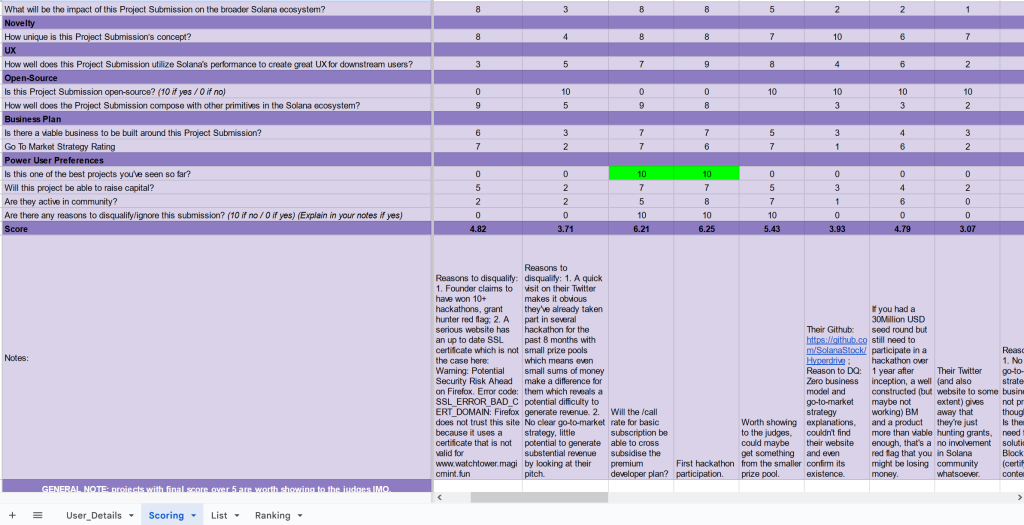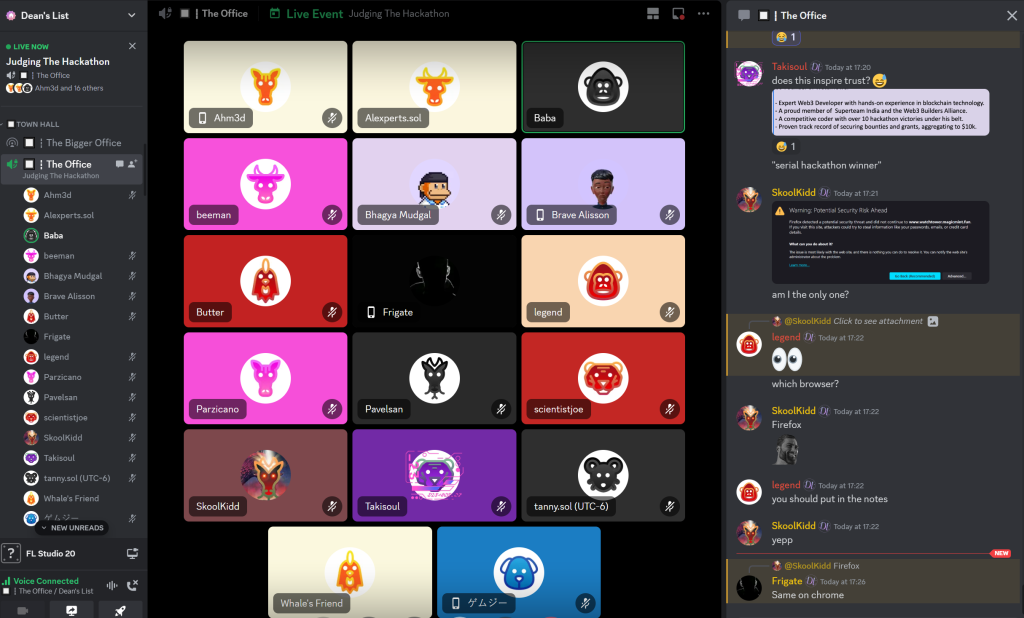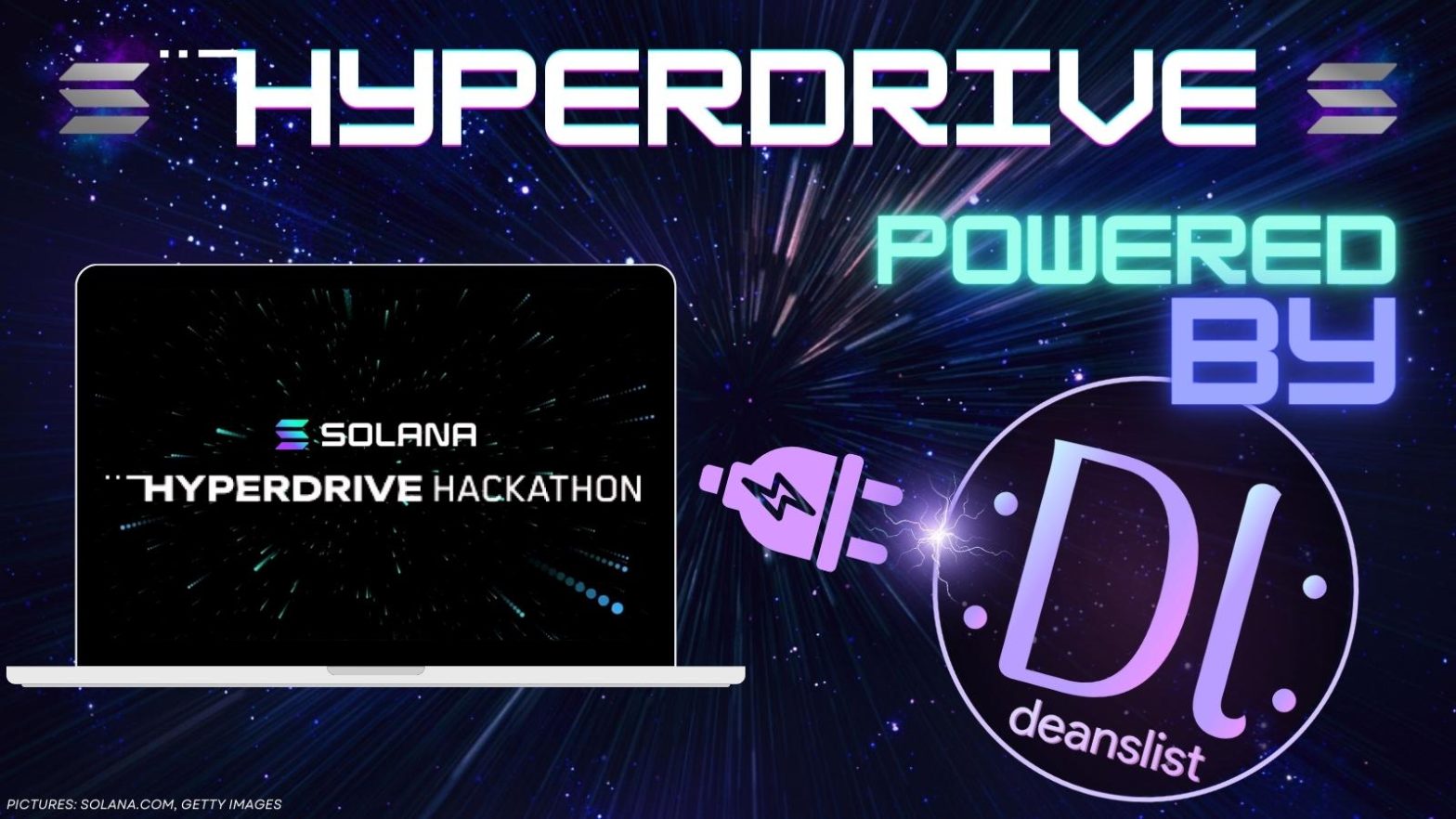October 20, 2023 – Dean’s List DAO has started reviewing a list of almost 200 shortlisted submissions for the Solana Hyperdrive hackathon! The Solana Foundation hired Dean’s List to make a pre-selection of candidate projects for the hackathon, and this is the most important task we have ever taken on for the greater Solana ecosystem. The original number of submissions was over 900, the most entries any Solana hackathon has ever had. However, since quantity doesn’t always mean quality, a first screening round was needed to retain roughly 200 submissions from the original list. But, even 200 projects is a lot to choose from when it comes to awarding the hackathon prizes: that’s why the Solana Foundation gave Dean’s List the mission to perform a second screening round, where this time the retained submissions will be much more thoroughly (and ruthlessly, for the sake of quality!) dissected so that only the most serious teams with the best crafted ideas and protocol prototypes will be presented to the final round judges responsible for awarding the grants. This makes Dean’s List members “screening judges”, although our role is in no way less important!
Indeed, a lot of blockchain hackathon submissions are unfortunately made by teams who for example:
- are already running a blockchain startup, but have a bad business model and are unprofitable/unable to raise further funding, and instead of investing efforts into solving that very problem, they try every possible way to obtain small amounts of money here and there to help sustain their unprofitable business: we call them “grant hunters”.
- dub themselves “serial hackathon winners”: yes, they really do think stating this would play in their favour, however the only thing it means to us is that you’re not willing to deliver on any of your projects in the long term!
- are not actually involved in the Solana ecosystem though they try give the impression that they are, when they are actually building on a different blockchain; some of them don’t even try to hide that they’re working on a different chain, or aren’t even building on any blockchain, believe it or not!
- simply were not able to properly build the foundations of a successful crypto startup during the hackathon (which lasted for 1 month): many submissions did not even present a business model idea and go-to-market strategy (not even a rough draft), and just showed us the demo of their app/smart contract. These submissions usually do not make it through to the final list of submissions, because having at least a draft of a business model and a go-to-market strategy is essential to the early success of a startup, and is too often ignored in the technical world of blockchain startups which attracts a lot of talented developers for whom business is not really in their blood (it’s all about gathering the right team). After all, whether it’s blockchain or not, a startup is a young business looking for the right business model!


When it comes to grading every submission, we use a grid with 14 criteria with different weights. We assess many aspects of the submission such as:
- the project’s potential to leverage Solana’s performance to create great UX for its future users, and make an impact in the ecosystem;
- whether the project composes well with Solana’s primitives, or “pillar protocols” (composable = leveraging the blockchain technology & API/open-source code of other protocols to create a synergy or functionalities of a higher order, and consequently new, better value to users)
- how big the potential market is for their product, their business model and go-to-market strategy;
, and more (see grading sheet pictures). We also leave notes for each project with specific remarks, or explaining the reason based on which we decide to disqualify that project.

And it’s not easy work! With 7 tracks, close to 30 projects per track on average and having to finish the work in 7 days, that means we are reviewing one track per day. Although some projects are easy disqualifications, we try to spend on average 10 minutes reviewing each project, but often go over that limit when we need more time to properly grade the project, which adds up to 5 to 7 hours of work per day (not counting breaks!). In the picture above, my colleague with whom I wrote our case study is expressing his dismay at the workload; “But it’s a kick-ass job”.

Everyday, the members gather in our virtual “office” to discuss the projects all day while grading. If you look closer at the chat on the right, you’ll see one of our members busting a “serial hackathon winner”. That submission probably went into the bin, unfortunately!
At the same time the work gets finished, the Solana Breakpoint event will start in Amsterdam and some of our members will fly there to meet other builders in the Solana space. We look forward to hearing about the final prize winners from the last round judges, and may quality win!

Leave a Reply